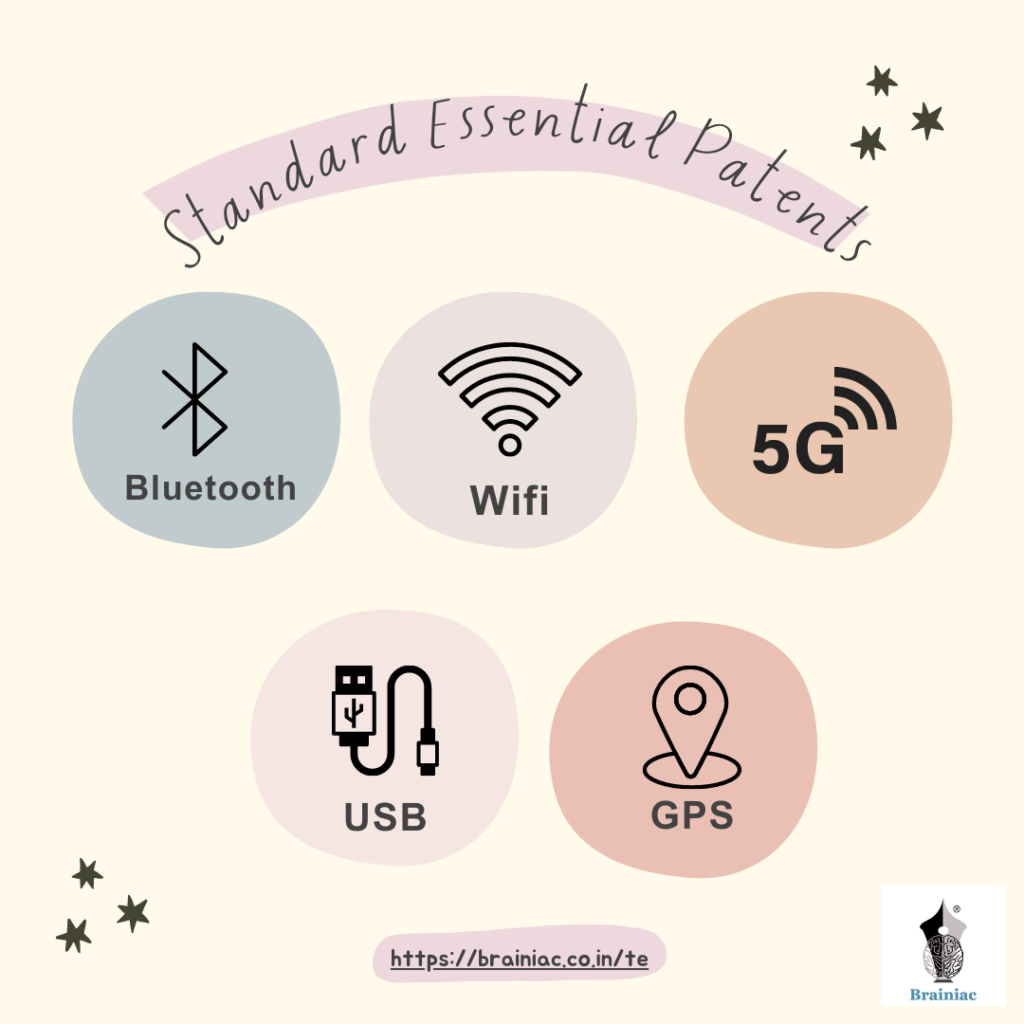Introduction
In a world where technology is changing quickly, devices and goods that work well together have become an important part of our daily lives. The idea of technical norms and the patents that back them up are what make this integration so smooth. Standard Essential Patents, or SEPs, are very important in shaping the technology landscape. They make sure that innovation thrives and that consumers get the best goods on the market.
Understanding Standards and SEPs
What are Standards?
Standards are what make current technology work. They are a set of rules, guidelines, or traits that everyone agrees on to get the best order in a certain situation. These standards come in different forms and are used as guides for making products and services in many different businesses. Standards are everywhere in our lives, from the A4 paper we use to print documents to the USB cords that connect our devices and the LTE networks that power our mobile phones.
Types of Standards
There are two main types of standards:
- De jure standards: These standards are set by Standard Setting Organisations (SSOs), which are groups tasked with creating and facilitating the standardisation process. The International Organisation for Standardisation (ISO) and the Institute of Electrical and Electronics Engineers (IEEE) are both good examples of SSOs.
- De facto standards: Unlike de jure standards, de facto standards come from widespread use in the market and may or may not have been officially accepted by an SSO. They become popular because they work, the market accepts them, and they are put into place well. Most of the time, the need for unity and compatibility in an industry is what drives de facto standards.
What are Standard Essential Patents?
As technology gets more complicated and varied, it is important to make sure that gadgets and systems can talk to each other easily. Standard Essential Patents (SEPs) come into play at this point. An SEP is a patent on a technology that is required to meet a certain technical standard. In simpler terms, a technology may be considered a SEP if it is essential for making sure that goods that follow a certain standard can work together.
Importance of SEPs
SEPs are very important for driving innovation and making the market more competitive. They urge companies to invest money into research and development to make new technologies that are so innovative that they become part of important standards. In return, SEP holders are given chances to licence their patents, which not only helps them recoup their investments but also lets them make a lot of money from patent royalties. These Patents
offer inventors exclusive rights to their innovations, effectively granting them a monopoly in the market for their specific invention. This exclusivity ensures that patent holders can fully capitalize on their creation, dominating 100% of the market segment for that particular innovation.
SEP vs. Regular Patents
SEPs and normal patents are different in what they cover and how they affect the commercial world. Even though all patents give the patent holder exclusive rights, SEPs have the added benefit of being required for compliance with a standard. This makes them very important for broad adoption and compatibility of technology. On the other hand, regular patents may cover advances or proprietary technologies that aren’t required for standard compliance but are still new and useful.
FRAND Licensing
Fair, Reasonable, and Non-Discriminatory (FRAND) licencing terms are one of the things that make SEPs unique. The FRAND principle makes sure that companies who own SEPs give licences to other companies on fair and reasonable terms and don’t favour one company over another. By following FRAND terms, SEP holders find a balance between protecting their intellectual property rights and creating a competitive market that helps both consumers and businesses.
Challenges of SEPs
While SEPs offer immense benefits, they also present certain challenges that require careful consideration and resolution:
Royalty Stacking: When a product incorporates multiple SEPs, the cumulative royalty fees, known as royalty stacking, can become burdensome for manufacturers, potentially affecting product affordability and competitiveness.
Patent Holdup: Patent holdup occurs when an SEP holder exploits its patent’s importance in a standard to gain undue leverage over potential licensees. This can lead to delays in product development and create barriers to competition.
Over declaration of SEPs: Over declaring patents as essential to a standard may undermine the credibility of the SEP system and lead to unnecessary legal complexities.
Infringement Lawsuits: The complex web of SEP licensing can sometimes lead to disputes and infringement lawsuits. Resolving these legal battles can be time-consuming and costly for all parties involved.
The Benefits of SEPs
For Manufacturers
Access to Cutting-Edge Technology: Manufacturers gain access to critical technologies necessary for developing products that comply with standard requirements.
Incentive for Research and Development: The potential to earn royalties on SEPs encourages inventors and companies to invest in research and development, driving technological advancements.
Technology Transfers: Licensing SEPs enables the transfer of essential technology between companies, promoting cooperation and knowledge exchange.
For Consumers
Interoperability and Compatibility: SEPs ensure that products from different manufacturers can communicate and work together seamlessly, enhancing user experiences.
Standardization of Technology: With SEPs, technology is standardized, leading to consistent performance and user familiarity across products.
Healthy Competition and Affordability: The competitive market fostered by SEPs encourages companies to innovate and offer products at competitive prices, benefiting consumers with affordable options.
Conclusion
Standard Essential Patents (SEPs) are crucial for modern technology, as they encourage innovation, facilitate compatibility, and bring benefits to consumers globally. SEP holders maintain a balance between safeguarding their intellectual property rights and ensuring broad accessibility to their technologies by following Fair, Reasonable, and Non-Discriminatory (FRAND) licencing principles. As technology progresses and new standards develop, the responsible and fair licencing of SEPs will become more important in shaping our connected future. SEPs contribute to progress by promoting cooperation, competition, and adherence to standards. They enable our interconnected world with technology that enhances our lives.

